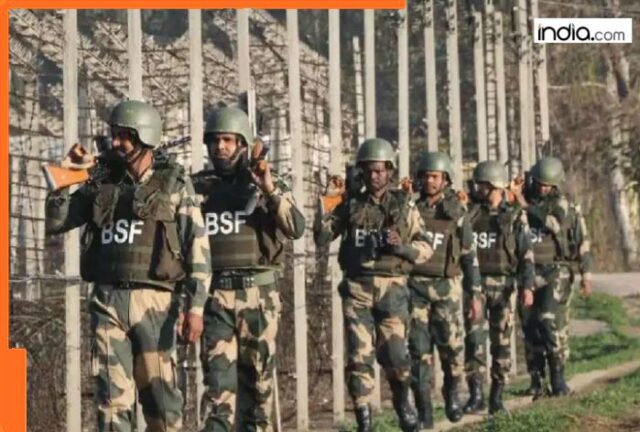India-Bangladesh relations have hit an all-time low after the ouster of former Prime Minister Sheikh Hasina, and an interim government led by Nobel laureate Muhammad Yunus, coming to the helm in Dhaka.
India-Bangladesh relations: In a major development that could pose a significant security threat to India, Bangladesh, which has adopted an anti-India stance after the the fall of Sheikh Hasina in August last year, leading to the deterioration of India-Bangladesh relations, is now actively trying to undermine New Delhi’s presence in the strategic ‘Chicken’s Neck’, also known as the Siliguri Corridor.
Suspicious radio signals on India-Bangladesh border
According to reports, Indian intelligence agencies recently intercepted “suspicious” radio signals coming from across the border, raising apprehensions that the Inter-Services Intelligence (ISI)– Pakistan’s notorious spy agency, is allegedly conspiring with anti-India extremists elements in Bangladesh to carry out its nefarious designs against India.
As per experts, while there is no conventional threat on the Siliguri Corridor as Indian armed forces have the capability to thwart any direct confrontation, but the ISI is orchestrating illegal migration and infiltration into India’s northeastern states, which has triggered a demographic change and altered the ethnic composition of border towns and villages.
Bangladeshi extremists getting closer to Pakistan
The emerging alliance between Dhaka and Islamabad after the ouster of Sheikh Hasina does not bode well peace and stability in the region because hardliners in Bangladesh, who were essentially unshackled after Hasina’s fall, have become increasingly close to Pakistan, Lt Gen (retd) Pradeep Bali writes in an article in the Tribune.
According to Bali, the 4096 km-long India-Bangladesh border, including the ‘Chicken’s Neck’ Siliguri Corridor, is secured by Border Security Force (BSF), but the BSF forces feel trapped in-between Bangladeshi and Indian villages and towns on the border.
The army veteran notes that illegal intruders from Bangladesh and their Indian supporters that inhabit these border areas, have compounded the problem, and border region has become a hotbed of human trafficking, illegal cattle trade, and drug smuggling.
The officer also stressed the need for strengthening the BSF, as well intelligence agencies on the border, as this is key to thwarting the enemy’s evil designs.
ISI increasing presence at Chicken’s Neck
Notably, in January, a delegation of senior officials of the Pakistan Army and ISI visited Rangpur Division in northern Bangladesh, located near the strategic ‘Chicken’s Neck’ Corridor, a narrow strip of land in West Bengal, that connects the India’s northeastern states to the rest of the country.
Reports citing sources in Dhaka said a four-member team of senior officials from the Pakistani Army and the ISI, arrived on a secret visit to Rangpur on January 21, following an invitation by Bangladesh Army’s principal staff officer (PSO) of Armed Forces Division, Lieutenant General SM Kamrul Hassan, who visited Islamabad last week.
The senior Bangladesh Army officer had extended an invite to his Pakistani counterparts to visit Bangladesh, who promptly obliged and arrived in the country on January 21.
India-Bangladesh relations
India-Bangladesh relations have hit an all-time low after the ouster of former Prime Minister Sheikh Hasina, and an interim government led by Nobel laureate Muhammad Yunus, coming to the helm in Dhaka.
Widespread communal violence against minorities in Bangladesh, especially Hindus, which has soured Dhaka’s ties with New Delhi, with the latter accusing the Yunus-led interim government of not doing enough, and turning a blind eye to the atrocities perpetrated by radical Islamist elements against the minority Hindu community in the country.

















































